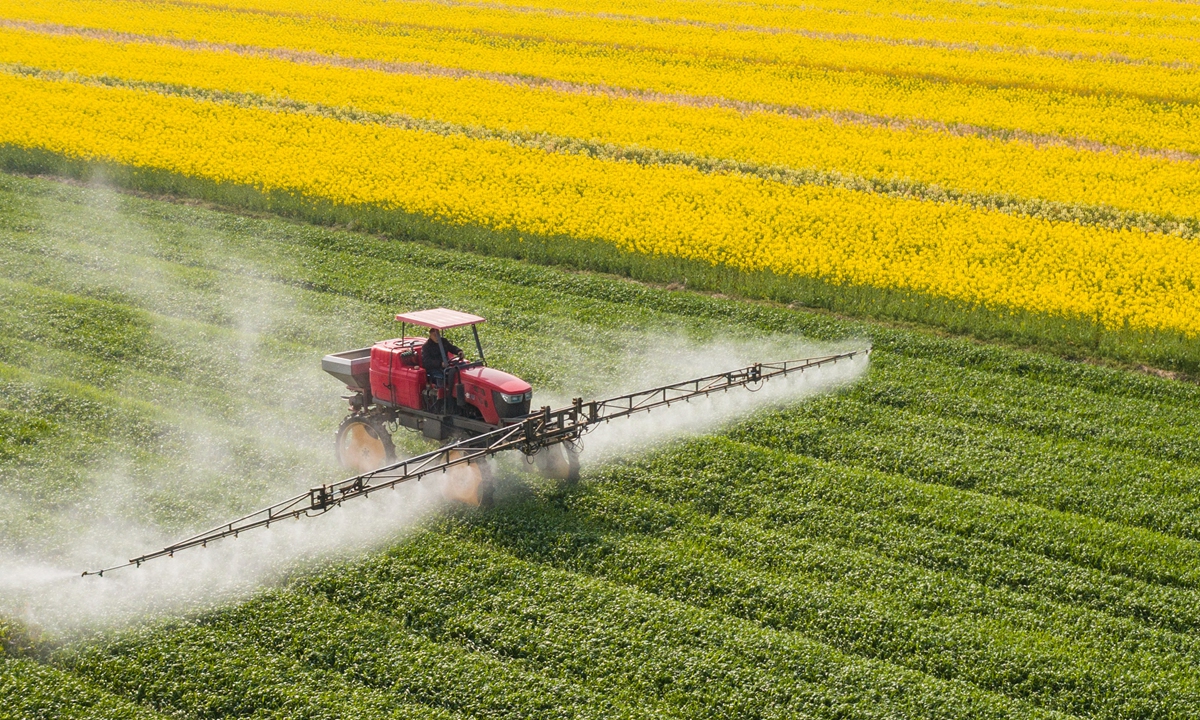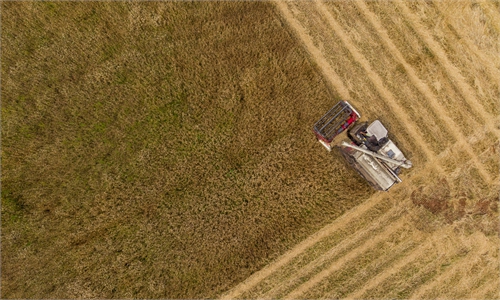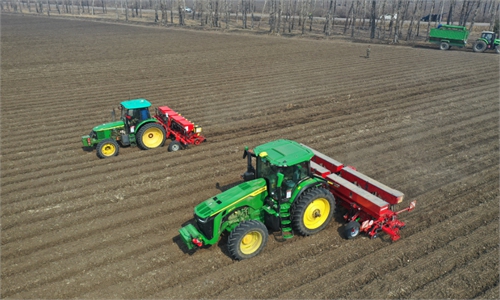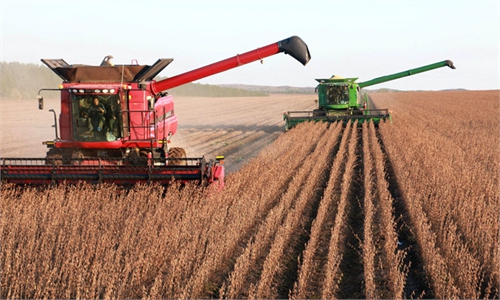China's Ministry of Agriculture vows to crack down on destruction of wheat crops in a push for food security

A farmer operates a pesticide sprayer over a wheat field in Nantong, East China’s Jiangsu Province on March 23, 2022. Photo: VCG
China's Ministry of Agriculture and Rural Affairs on Tuesday urged a thorough inspection of various activities that harm wheat crops and pledged to clamp down on the destruction of wheat crops, as the country prioritizes food security.
In response to media reports alleging that wheat crops were damaged as some plots of land turned into construction sites and videos circulating online that show green wheat being cut to be used as fodder, an unidentified official of the ministry said that actions have been taken during the May Day holidays to verify such allegations and relevant provinces are ramping up their inspection efforts.
In addition, the ministry recently required local governments across the country to thoroughly tackle practices that ruin wheat crops, according to a statement on the ministry's website.
The ministry vows to crack down on violations of laws and regulations case by case, the statement said.
Since last year, wheat production has managed to overcome multiple challenges like autumn floods, weak seeding and pests. Currently, wheat crops are growing well and it has taken a lot of efforts to get such a good harvest prospect, according to the official.
The ministry will guide efforts to strengthen wheat crop management, implement measures to increase wheat yields and prearrange cross-regional mechanical harvest to ensure every single grain is sent to the granaries.
Wheat ripens and is ready for harvest in about 20 days, and the plots that are taken over to be used as construction sites should not be available for new projects until the wheat is harvested, the official noted.
The fruits of the work of farmers for more than 200 days need to be cherished, the ministry official remarked.
China has vowed to ensure food security by holding the people's rice bowl firmly in its own hands, according to a key policy document published in February.
The No.1 central document, issued by China's central authorities each year, is an important indicator of policy priorities for the period and has now, for the 19th year in a row, focused on agricultural and rural matters.
This year's No. 1 central document gives top priority to grain production and the supply of important agricultural products. The purpose is to ensure that the rice bowls of more than 1.4 billion Chinese can mainly be filled with Chinese grain, said Tang Renjian, Minister of Agriculture and Rural Affairs.
The country envisions stabilizing the yearly grain cultivation area, with grain output maintained above 650 billion kilograms.
Last year, the country's total grain production reached 685 billion kilograms, reaching a new high, according to data from the National Bureau of Statistics. That suggests that the nation's grain output has topped 650 billion kilograms for seven consecutive years.



